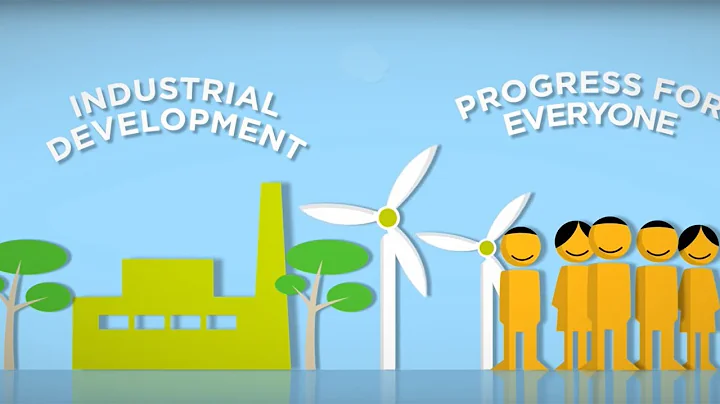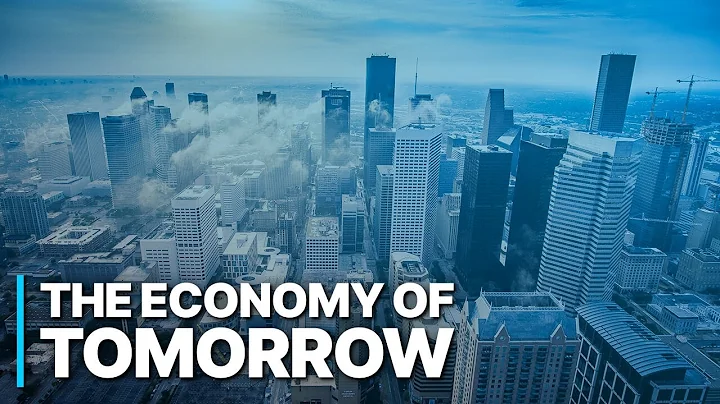
Introduction
The rise of an international financial center is the result of a country or a region’s hard work and natural evolution. It requires a comfortable living environment, a sound contract system, rapid information transmission, smooth capital flow, and fertile innovation soil. Wait for the conditions. The author of this article summarizes the successful experience of international financial schools and believes that social environment, financial infrastructure , and financial culture are the three core pillars that support the continued prosperity of international financial centers.
Author丨Feng Xilai (President of CCB International (Holdings) Co., Ltd.)
Lu Gaofei (IMI researcher, deputy general manager of China Construction Bank Suzhou Branch)
The formation and development of an international financial center has its own special causes, covering the country in which it is located. location and time zone advantages, currency convertibility and free flow, acceleration of economic globalization and other factors. In fact, the rise of an international financial center is not only the result of a country or a region's efforts, but also the result of natural evolution. It has experienced a "crystallization" process in which multiple components function and evolve over a long period of time. The required conditions include: Comfortable living environment, perfect contract system, rapid information transmission, smooth capital flow, fertile innovation soil, etc.
After long-term observation of the two major international financial centers of London and New York, as well as conversations with international financial professionals, the author found that an international financial center can maintain its lasting charm and prosperity and has its "mainstay". Summarizing successful experiences, the author believes that social environment, financial infrastructure, and financial culture are the three core pillars that support the continued prosperity of international financial centers.
01 Harmonious social environment
Stable social and political situation
The function of an international financial center is to assume the security responsibilities of global financial transactions such as capital, foreign exchange, bonds, commodity futures, and gold through the concentration of large-scale financial institutions in a certain area. . Only the stability of the country or region where the international financial center is located can ensure the security of international financial transactions, and a turbulent social and political situation cannot attract international capital, financial institutions and financial talents.
The capital of the NetherlandsAmsterdam was once the first world financial center. However, with the bursting of the "Tulip Bubble" and the social unrest caused by successive wars in the Netherlands, Amsterdam's financial industry was greatly weakened. According to the International Financial Centers Index report, Amsterdam today does not rank among the top ten financial centers in the world. Throughout hundreds of years, London and New York have remained the world's top international financial centers for a long time due to their long-term stable domestic political situations and booming financial industries. Evidence shows that whether a financial center can develop, a stable social and political situation is crucial.
Excellent urban ecology
The international financial center is also a country's golden signature on the international stage. Its success is not only reflected in having a group of financial landmark buildings that "stand out among the crowd", but also in having a high-quality urban ecology. When the economic conditions are low, people's pursuit of material is the first requirement; when the economy is developed, people have higher requirements for environmental protection, environmental noise, air quality and other suitable ecological environment for industry, livability and people.
London is fully aware that the ecological environment plays an increasingly important role in the international development trend, and has been making efforts to improve urban ecology and environment. London has proposed the goal of becoming the "greenest global city" and promulgated the "London Environmental Strategy" to create a cleaner and more environmentally friendly city. If an international financial center wants to attract high-level international financial institutions to invest and international financial elites to settle there, it must work hard to create a high-quality urban ecology. The national economic strength makes the financial center strong, and the urban ecological environment makes the financial center grow.
02 Powerful financial infrastructure
Efficient hardware facilities
Efficient payment system and complete factor market are important hardware infrastructure for the operation of financial centers.The payment system is responsible for providing settlement and clearing services to trading participants in the process of financial asset transactions; providing global settlement and clearing services to market participants fairly and transparently, which plays an important role in the stable operation of international financial centers. To this end, the international financial center must be equipped with a safe and efficient payment system to connect financial transactions involving global financial assets and eliminate the credit risk and liquidity risk of counterparties in a timely manner. In order to achieve continuous and efficient operation of the payment system, payment system participants should provide liquidity support in the form of day overdrafts or credit extensions. On the one hand, the payment system embodies the core strength of an international financial center; on the other hand, it plays a key role in enhancing the stability of the financial center.
The financial factor market is an important financial infrastructure for financial asset transactions, financing, and resource allocation. Stocks, bonds, foreign exchange, futures, insurance and other financial asset exchanges control the formulation of financial asset trading rules and transaction access rights, directly affecting the scale, flow and order of financial asset transactions. The financial factor market must be upgraded and configured to follow the breadth and depth of the development of financial centers and the deepening of the business models of financial institutions. A factor market with multiple functions can help an international financial center become a leader in global financial centers; conversely, a financial center that lacks a factor market and lacks saturation in transaction functions will find it difficult to become a top world financial center.
Complete software facilities
A sound legal system and strict accounting rules are important software infrastructure for a financial center to transform into an international financial center. In complex international financial activities, financial institutions have high expectations for legal enforcement requirements. Disputes will inevitably arise between financial institutions and between financial institutions and enterprises. To give all parties to the dispute a fair and reasonable definition of their interests requires a sound legal system to work. A sound legal system enables financial institutions and financial practitioners to equally enjoy legal protection, making the international financial center more trustworthy and recognized.
Strict accounting rules can regulate international financial transactions and promote the activity of international capital flows. Implementing accounting rules that match international financial activities, on the one hand, improves the transparency of financial transaction activities, enables global stakeholders to understand financial matters and financial trends, and facilitates investors to make financial investment decisions; on the other hand, international judgments Standards can fully consider the interests of all parties around the world and help protect the interests of investors.
03 Trustworthy financial culture
Resilient regulatory culture
In addition to the governance culture of financial institutions themselves, regulatory culture also plays an important role in the stable operation of the financial system and the cultivation of risk compliance culture. As financial institutions continue to expand their business scope and financial innovations continue to emerge, the boundaries of business compliance have become blurred, placing higher demands on regulatory agencies. Misconduct by financial institutions may cause harm to a financial center and seriously damage its international reputation, for which strict financial supervision is necessary. However, while regulatory actions serve as punitive warnings, protect public interests, and win the trust of the international community, they must not create a "sense of fear" in financial institutions and tie up their business development. This requires international financial centers to build a resilient regulatory culture.
The effectiveness of financial supervision is not only to prevent and control the occurrence and transmission of financial risk events, but also to promote and ensure the sound and sound development of finance. This requires the regulators of international financial centers not only to have the functions and capabilities of traditional administrative agencies, but also to establish an effective error-tolerance and error-correction mechanism. The international financial center is a highland for financial innovation and development. Financial institutions may make certain mistakes or even commit some wrongdoings in the process of exploring and developing international business. The ability to accurately grasp the regulatory standards for the innovative development of financial institutions is related to the innovation and attractiveness of the international financial center. An effective fault tolerance and correction mechanism must be based on the motivation of business development. For financial institutions that meet or perform due diligence requirements and meet fault tolerance conditions, the regulatory authorities will give them leniency or even exempt them from liability in accordance with laws and regulations.
International integrated culture
In an open international market environment, various cultures are constantly in contact and collision. Inclusive culture is an important financial cultural gene for international financial centers to achieve high-quality development. In its global operations, international financial centers need to introduce and advocate an inclusive culture that respects and recognizes each other's cultural differences, so that the capabilities released by various harmonious cultures can jointly serve the development of financial centers. If a multinational financial institution enforces a country's mainstream culture and ignores other foreign cultures, the consequences will not only severely dampen the enthusiasm of foreign cultural groups, but also plunge the mainstream cultural groups into various conflicts. A long-term exclusive culture will inevitably hinder the prosperity and development of financial centers. Only an inclusive culture can gather strength and promote the continued prosperity of financial centers. New York is a very inclusive international financial center city that brings together financial talents of different skin colors, different beliefs, and different languages from all over the world, and reserves a wealth of financial talents for the sustainable development of the financial center.
Open innovation culture has increasingly become an endogenous driving force that promotes international financial centers to gain an important position in the world financial system. Its innovation and development must conform to and enter into the new trends and trends of international economic development. From the current stage, the concept of ESG (environmental, social and corporate governance) development continues to attract global attention, and it is an economic model vigorously promoted and developed by various countries. For the financial field, the ESG concept can be extended to green finance and digital finance . If the current international financial center wants to pursue high-level development, it should seize the opportunity of ESG, pioneer and innovate in the fields of green bonds, green credit, digital currencies, etc., and build itself into a green financial center and a digital financial center.
After the UK leaves the European Union , some financial institutions have withdrawn their financial operations from London, and competition for financial resources has taken place in Europe. On the one hand, Frankfurt, Luxembourg , and Paris each use their own tactics and capabilities to seize London's financial resources and use this as an opportunity to enhance their status as an international financial center; on the other hand, London is actively defending its core position as the world's financial center. , government departments, financial regulatory agencies, the City of London have introduced "preferential treatment policies."
It can be seen that in a fiercely competitive international environment, the status of an international financial center is not static and needs to be consolidated and deepened. As Asia's leading international financial center, facing the competition from Singapore and Dubai , Hong Kong must consolidate and deepen its international status. It must further consolidate the three pillars and consolidate the three pillars in the great practice of " one country, two systems". The world's best financial institutions, the richest financial resources, and the top financial talents are attracted to Hong Kong to promote the continued prosperity of Hong Kong International Financial Center.
source | Ta Kung Pao
page editor | He Xu
editor in charge | Li Jinxuan, Jiang Xu
director production | Zhu Shuangshuang
recent hot articles
live broadcast preview | Wang Guogang , Li Xunlei , Zhao Xijun , Zhang Bin, Xia Lei , Chen Xiaoliang and others jointly interpret "New Citizens and New Models: Real Estate Market Facing the Future"
Call for Papers | Sino-US Student Leaders Financial Dialogue - Sino-US Cooperation in the Field of Green Finance
Guan Tao: The market should be wary of the Japanese debt circuit breaker Rather than the sharp fall of the yen
Zhong Zhengsheng and others: The next step in the depreciation of the yen and the Japanese debt crisis
Federal Reserve Board of Directors: The July interest rate meeting should continue to raise interest rates 75 basis points






















